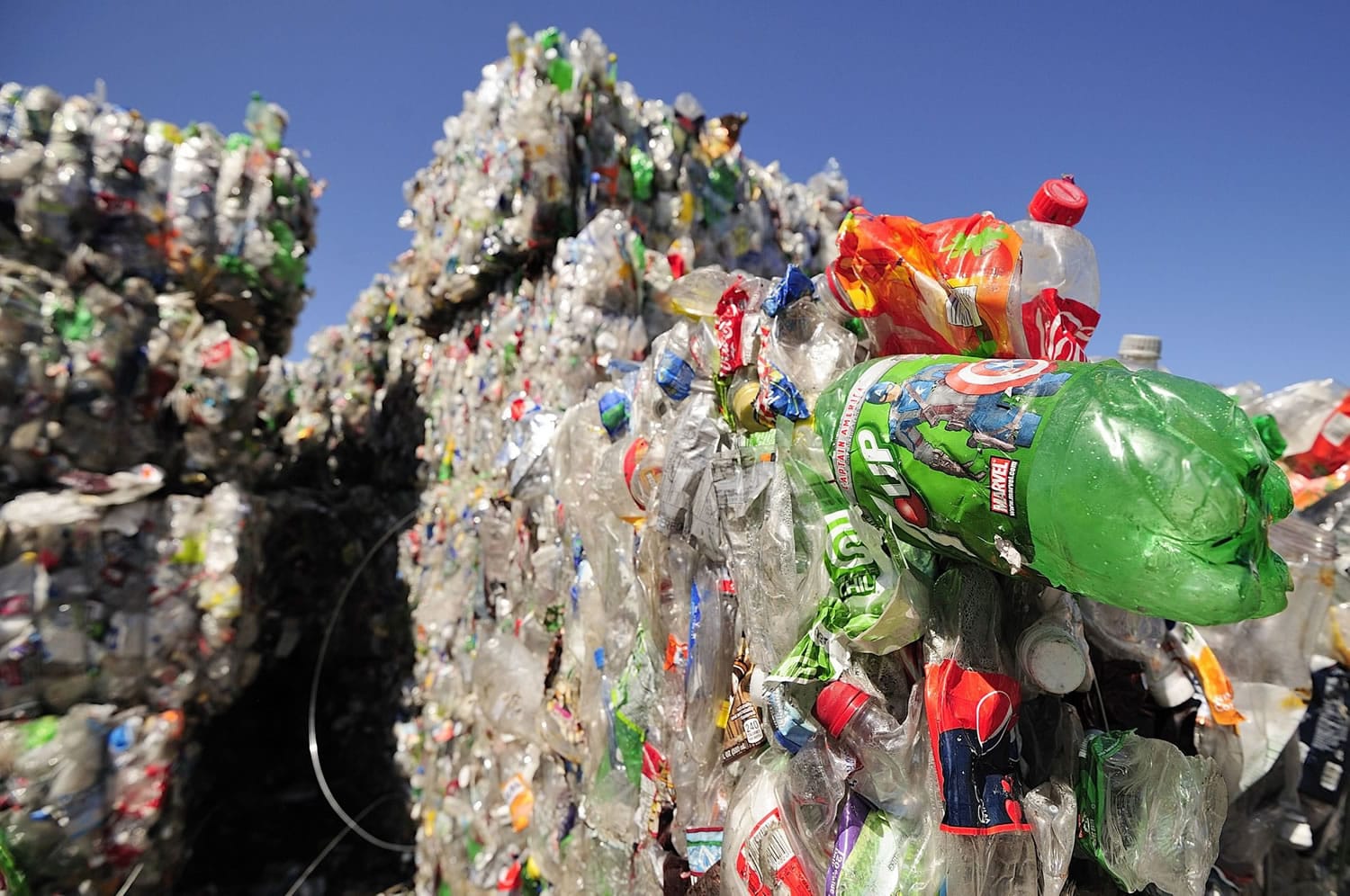Collection crews continue to find misplaced items in the county’s blue recycle bins. Here’s what to do with some common items.
Put it IN: Newspaper, mixed paper, cardboard (rinsed if drink or soup containers), aluminum and tin cans, clean foil, empty aerosol cans, plastic tubs, buckets, nursery pots, plastic bottles.
Leave it OUT: Glass (collected in a separate bin), plastic bags, paper towels, paper plates, food-soiled foil, auto parts, Styrofoam, motor oil bottles.
Other stuff: Dozens of other items can be collected separately or taken to a transfer station for proper disposal. Unwanted medications can be taken to local law enforcement agencies. For more information, visit www.recyclinga-z.com.
Collection crews continue to find misplaced items in the county's blue recycle bins. Here's what to do with some common items.
Put it IN: Newspaper, mixed paper, cardboard (rinsed if drink or soup containers), aluminum and tin cans, clean foil, empty aerosol cans, plastic tubs, buckets, nursery pots, plastic bottles.
Leave it OUT: Glass (collected in a separate bin), plastic bags, paper towels, paper plates, food-soiled foil, auto parts, Styrofoam, motor oil bottles.
Other stuff: Dozens of other items can be collected separately or taken to a transfer station for proper disposal. Unwanted medications can be taken to local law enforcement agencies. For more information, visit www.recyclinga-z.com.
Clark County has three transfer stations that accept drop-off waste on weekdays and limited weekend hours.
West Van Materials Recovery Center: 6601 Old Lower River Road.
Central Transfer and Recycling Center: 11034 N.E. 117th Ave.
Washougal Transfer Station: 4020 S. Grant St.
Looking for some positive economic news? Look no further than the giant piles of garbage at Clark County’s three transfer stations.
In 2010, the county saw an increase in the amount of garbage it sent to the landfill, according to data released earlier this year. The uptick followed three straight years of declining garbage — largely seen as an economic indicator, particularly for building activity that produces much of the county’s waste.
During down years, the same trend reached right down to residents’ curbside bins, said county sustainability specialist Rob Guttridge.
“People were just buying less, consuming less and making less waste,” he said. “The economy is a big driver.”
Of course, most people wouldn’t consider more garbage in a landfill a good thing. But recycling volume is also on the rise. In the first three months of 2011, most of Clark County collected more recycling than during the same period in any of the previous four years.
Both increases meant the county’s recycling rate remained stuck at 46 percent in 2010. In other words, out of all the waste that could have been recycled, less than half of it actually made it to the right place. An additional 10 percent of waste, however, was recovered and used for fuel, according to the data.
The county’s blue roll-out bins — inviting mixed materials in one container — have significantly boosted recycling rates since they made their debut in 2009, Guttridge said. But pickup crews still find plenty of items that shouldn’t be there, he said.
Among the worst culprits are the “flexible plastic” found in grocery bags and other wrappers, and glass, Guttridge said. Glass is supposed to collected in a separate bin. Plastic bags and wrappers can’t be collected curbside, but can be taken back to grocery stores to be recycled.
Guttridge urged people to be sensible about recycling plastic and other materials that are hard to get rid of. Especially if it means hopping in the car.
“Don’t go 10 miles out of your way,” Guttridge said. “Don’t use up 15 pounds of petroleum to recycle three pounds of petroleum-based plastic.”
Some materials are less black-and-white. Guttridge noted that cardboard milk cartons can be recycled (as long as they’re rinsed), but the cardboard used for most frozen food packaging cannot.
Clark County has three transfer stations that accept drop-off waste on weekdays and limited weekend hours.
West Van Materials Recovery Center: 6601 Old Lower River Road.
Central Transfer and Recycling Center: 11034 N.E. 117th Ave.
Washougal Transfer Station: 4020 S. Grant St.
The difference: Milk cartons are plastic-coated on both sides, meaning it’s easier to strip it to get a clean paper product underneath. Frozen food boxes are only coated on one side, leaving the other side often contaminated with food or moisture. That subtle distinction is a source of much confusion, Guttridge said.
“It’s a challenge for us to explain,” Guttridge said, “and a challenge for people to understand.”
If the increase in Clark County’s recycling volume carries through the rest of 2011, it will be tough for Chris Thomas to tell. He’s site manager at the West Van Materials Recovery Center, which on Aug. 1 started processing recycled materials from Lane County, Ore. That’s meant adding a second eight-hour shift to the transfer station. It’s also doubled the amount of recycling the facility receives to close to 300 tons per day.
Thomas described a wide range of errant items that end up in the intricate maze of sorting lines and machinery that process recycled materials. Hazards like glass or even hypodermic needles can force workers to temporarily shut down the lines, he said.
Outside the station’s main warehouse, Thomas walked up to a cube of baled plastic. Guttridge plucked out a Eugene Register-Guard newspaper, which apparently made its way — from Lane County — into the wrong load.
“This isn’t a perfect science,” Thomas said.
Eric Florip: 360-735-4541 or eric.florip@columbian.com.




